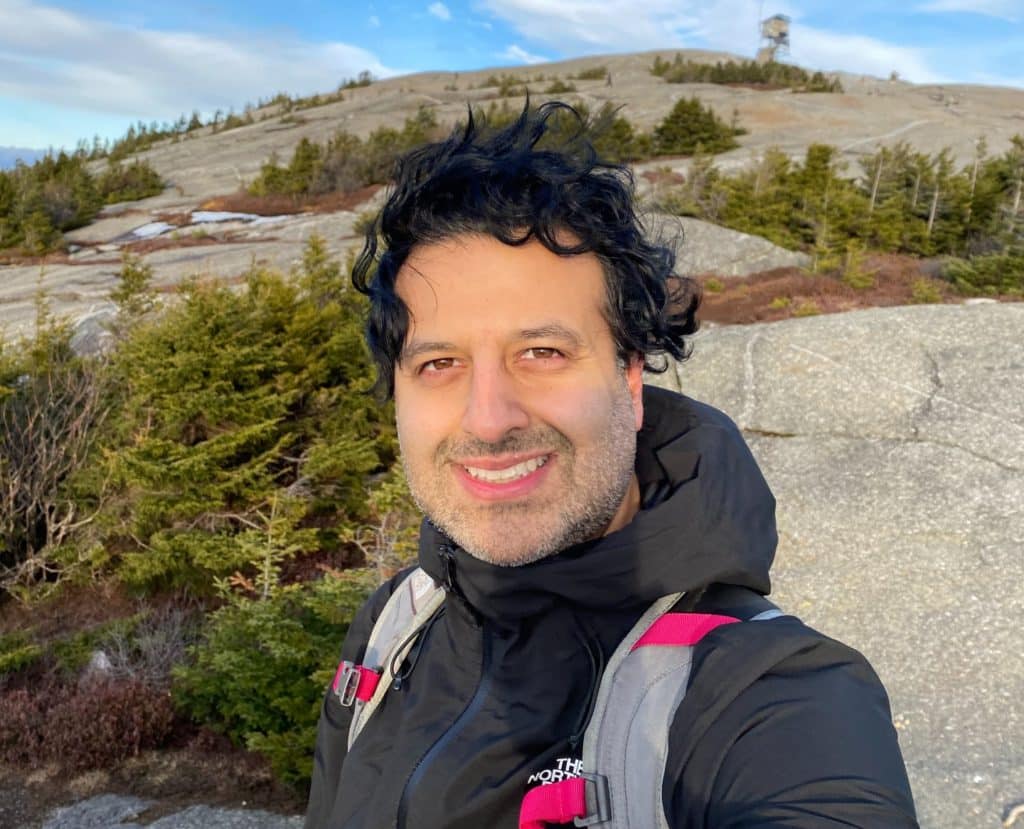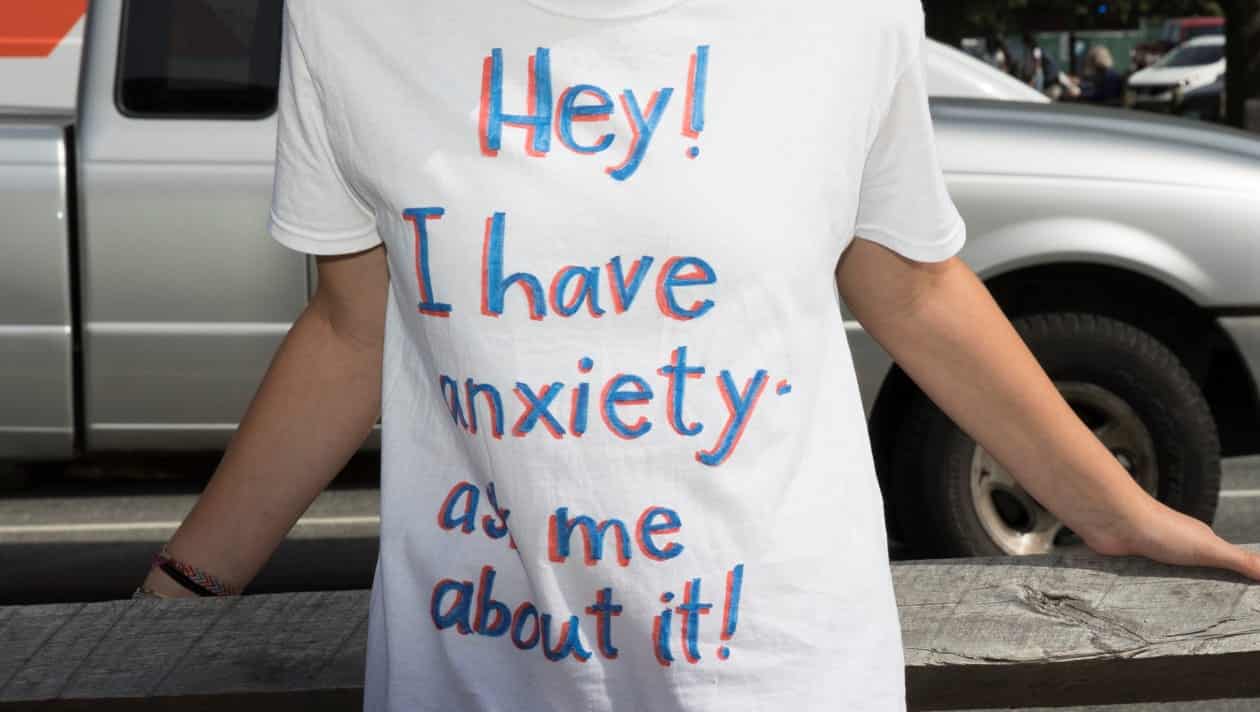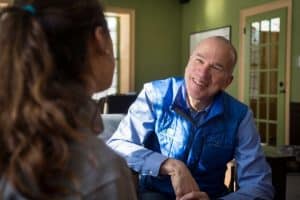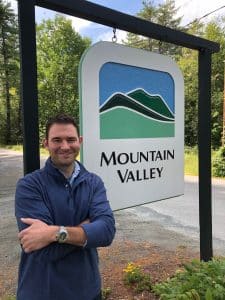In the words of rock and roll titan Alice Cooper, “School’s out for summer!” Well, sorry, Alice, but it’s that time of year again, summer is in the rear view mirror and most adolescents are back in school. Actually, most adolescents have been back in school for a couple of months now, and many have, once again, hit the proverbial “wall,” and are refusing to go to school.
As children, when my siblings and I felt nervous or upset before school, our mom would just tell us “eat a banana and get on the bus.” She was a nurse, so we trusted that this was a legitimate cure and eating this magical fruit would miraculously make everything right in the world. And, while this is not an evidence-based first line treatment, it apparently worked for us and got us to school and her to work.
So, what happens when you need more than just bananas (or prunes, for that matter – another magical fruit so familiar to Mountain Valley alums) to respond differently to your OCD or anxiety, live your life more fully and unburdened, and get yourself to school?
Well, I’ve recently read some interesting and informative blogs and articles related to the start of school and OCD and anxiety. There is a great deal of good information out there from professionals related to evidence-based treatments, but I also thought it would be useful to include some thoughts from those living with OCD, anxiety, and OC-related challenges. So, I sat down with several gracious Mountain Valley residents to get their thoughts…
Awareness and Insight
I was curious about awareness and insight into OCD and school-related challenges, so when I asked how Tommy* became more aware that challenges started to increase for him, he noted, “when little things became big problems…I had always loved school but then I started to hate school and then I started to think ‘what’s the point?’”
This was the evolution of OCD and BDD-related challenges leading to depression-related challenges. This is what led to an increase in isolation and avoidance. Tommy stated, “Just the thought of school was so distressing that I didn’t want to move.” Having to avoid certain places and situations at school, due to the OCD-related stress, took a toll and despite his efforts, it was exhausting. He was unable to consistently get to school and he fell farther and farther behind in school.
Similarly, Gina* noted that it’s important to remember that school is not just about academics, and that academics are not the only sign of difficulties. She could keep up her grades fine for a time; however, prior to challenges with her grades, she noticed an increase in isolation and time trying to distract herself from distressing thoughts and situations, stating, “I didn’t want to spend time with my thoughts.” She and her family began to notice a need for more help as she became more withdrawn and started avoiding school. For Gina, as she returns to school, she plans to keep in mind that “it’s not just about academics,” but also overall health and living life in a meaningful and fulfilling way.
Reaching Out for Support
Another important theme came out of these conversations; the importance of reaching out for support. Both Tommy and Gina noted the importance of trusting others enough to share their challenges, but also noted that it was hard for them to understand their challenges enough to articulate them to others. As such, it can be challenging for others to respond in a way that is helpful. Sometimes, family, friends, and teachers will not understand what’s happening for someone living with OCD or anxiety and it’s challenging to talk about this.
Tommy noted that he didn’t feel shame in talking about his challenges, but also just did not know that he could talk with others about this, despite having loving and caring relationships. Gina noted, “I didn’t want others to see how vulnerable I was, but I didn’t have the energy to cover it up either…so I just didn’t go to school.” Both also noted that in the absence of sharing with others that it’s too easy to rationalize their challenges, minimize them, make excuses, or be overwhelmed with their obsessions and compulsions. By bringing in others to the challenges, you’re able to get feedback and support.
Get Creative with School and Treatment
Tommy and Gina suggested using academic advisors, school counselors, family and friends for support and to tailor your OCD and anxiety treatment to school. That is, to incorporate exposure therapy into your school day to address your OCD while still working on your academics and engaging in other school activities. They suggested getting creative with school schedules, if possible, so that you’re able to attend school and achieve, while also still giving yourself time to recover and engage in treatment. Gina noted that if you are really suffering and stuck, “It’s okay to sacrifice a semester or to take time out of school to get treatment.” This, in reference to a more intensive level of treatment, more so than typical outpatient therapy.
You are More than your OCD
A final overarching theme was to find ways to continuously challenge yourself to overcome your stuck points with OCD and also to continuously care for yourself. It’s crucial to remember that you are more than your OCD and more than your OCD is allowing you to be during challenging times. Living with OCD, anxiety and OC-related challenges is not easy and change can be difficult; however, you’ve got people like Tommy, Gina, and the staff at Mountain Valley to keep cheering you on.
- Intrusive thoughts à distraction
- Engaging in compulsions à distraction – can open you up to bullying and ridicule
- Address the lack of understanding of OCD by educating school staff
- Help your child find ways of explaining their OCD to their friends
- Identify self-care to help your child continue attending school
- Identify support people at school
- Help your child understand their reasons for continuing to attend school and engage fully
- Know that there will be ups and downs – some days are harder than others
- It may be harder during the transition times and also when the work increases/becomes more challenging
*Names have been changed to protect confidentiality. Prior to MVTC, Tommy attended school and worked a part-time job on the docks.
*Names have been changed to protect confidentiality. Prior to MVTC, Gina attended school and worked a part-time job at a diner.
Dr. Timothy DiGiacomo, Mountain Valley’s Clinical Director, is a licensed clinical psychologist with comprehensive experience treating children, adolescents and adults with individual, group and family therapy, including utilizing CBT-based modalities for anxiety, depression and trauma. Tim has treated individuals with anxiety, depressed mood, motivational difficulties, stress-related problems, learning difficulties, and trauma. Tim has completed the International OCD Foundation’s Advanced Behavior Therapy Training Institute (BTTI) and is trained in Trauma Focused Cognitive Behavioral Therapy, Child Parent Psychotherapy, and other evidence-based treatments. He has a particular interest in family therapy. Tim enjoys meeting clients where they are at and helping them to learn the tools that they need to resolve their difficulties. Tim takes a strengths-based and supportive approach to empower families to make positive changes that work for their family’s needs.
Dr. DiGiacomo oversees, leads and guides the clinical program and strategic development of our clinical services. This includes, but is not limited to, ensuring the incorporation of the latest in Evidence Based Practices (EBP) for the treatment of OCD and Anxiety Disorders, overseeing Performance Measures systems including Outcomes Monitoring, research, and screening approval for prospective clients. He also serves as the “Clinical Face” of Mountain Valley externally. This includes, but is not limited to, developing and delivering local, regional and national conference presentations, supporting clinical outreach activities, liaison with external organizations and entities to the benefit of Mountain Valley and in the overall treatment of OCD and Anxiety Disorders.
Dr. DiGiacomo provides on-site clinical supervision of staff and systems including directly supervising the Senior Clinician and at least one therapist for both administrative/performance and clinical supervision and providing clinical supervision for the Associate Clinical Director. He actively engages in and supports the marketing communications initiatives and branding to include, but not be limited to, identifying national accreditation for the Residential Exposure Specialist training, supporting the digital marketing program, and publication of the work we do.
During his time at West Central Behavioral Health in Lebanon, NH, Dr. DiGiacomo worked as a clinician, psychological assessment coordinator, Team Leader, and Acting Director of the Child Team. He served as a Clinical/Adjunct Assistant Professor of Psychiatry for the Geisel School of Medicine at Dartmouth College, providing therapy and assessment supervision, and teaching seminars for psychology interns and post-doctoral fellows. He has taught courses on co-parenting and alternative dispute resolution for the State of New Hampshire for families going through divorce. He has also served as adjunct faculty for New England College and Franklin Pierce University, teaching at both the undergraduate and graduate levels. He served as a psychologist and consultant for the Plainfield, NH and Lebanon, NH school districts. Tim has worked in research at Yale University, in clinical roles at VA Medical Centers, and in various mental health facilities.
Dr. DiGiacomo graduated from the Virginia Consortium Program in Clinical Psychology and completed his internship and post-doctoral fellowship at Dartmouth Medical School. He earned his Master of Arts in Community and Clinical Psychology at Norfolk State University. He completed his B.A. in psychology at Fairfield University.



 Lyme, NH psychiatrist, Dr. Barbara Wilson, offers the Mountain Valley family a “daily dose of support” – My Version of Anxiety isn’t your Version of Anxiety!
Lyme, NH psychiatrist, Dr. Barbara Wilson, offers the Mountain Valley family a “daily dose of support” – My Version of Anxiety isn’t your Version of Anxiety!

